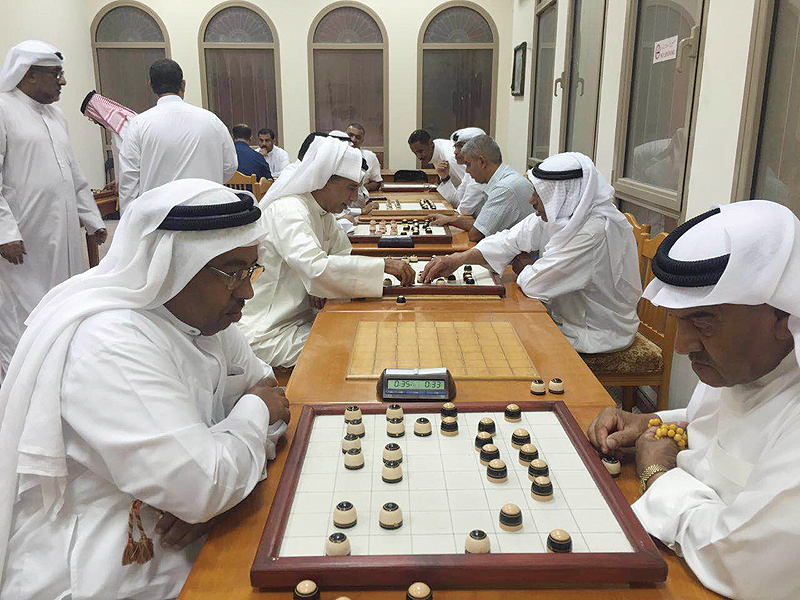KUWAIT: After the advent of video games, digital entertainment and social media, traditional games were abandoned. But recently, people are engaging in social games, remembering the old times. In Kuwait, there are various traditional games - both old and new. Children are no longer playing popular outdoor games like ambar, muxi, heila, hay almeet, teela (marble) and others.
Many other games are played by both children and adults. The most popular social games played in diwaniyas involve playing cards, including kot, played by six players. Nethala is played on the same basis as kot with at least three or four players. Hand is played with a minimum of two players or more.
Carrom is an old game which was forgotten for many years, but is being played again. Carrom consists of wooden square board with four holes in the four corners. Players should pocket small round wooden black and white pieces into the holes with a striker. Dama (draughts) is played by both young and old people. It is played by two players, who place small round wooden pieces in two colors on a chequered board or square piece of cloth.

Some old international board games that were forgotten for many years are back - in Kuwaiti style. Monopoly, where players buy and sell properties, was reissued in card form to make it easier to carry, so it can be played anywhere. A Kuwaiti version of this game was also released (Deal).
Two or three years ago, a Kuwaiti designed a board game 'Inhash ya Theeb' (Run Wolf) based on Ludo that became very popular. It can be played by two, three or four players. It is a simple board game played by moving four pieces to the house, and the winner is the player who gets all his figures to the house first. This game is now played in all diwaniyas and family gatherings.
International games played frequently in Kuwait include the card game UNO. Dominoes and chess are also played by some groups, but are not very popular. Games from childhood that are still played in some gatherings include 'Insan Hayawan Nabat' (Name Place Animal Thing), using pen and paper. The winner is the player who finishes first in filling all five categories with a name starting with the same letter including humans, animals, plants, things and countries. During the holy month of Ramadan, some clubs and companies organize competitions in some of the abovementioned games, in which many people, especially the youth, participate.
By Nawara Fattahova











